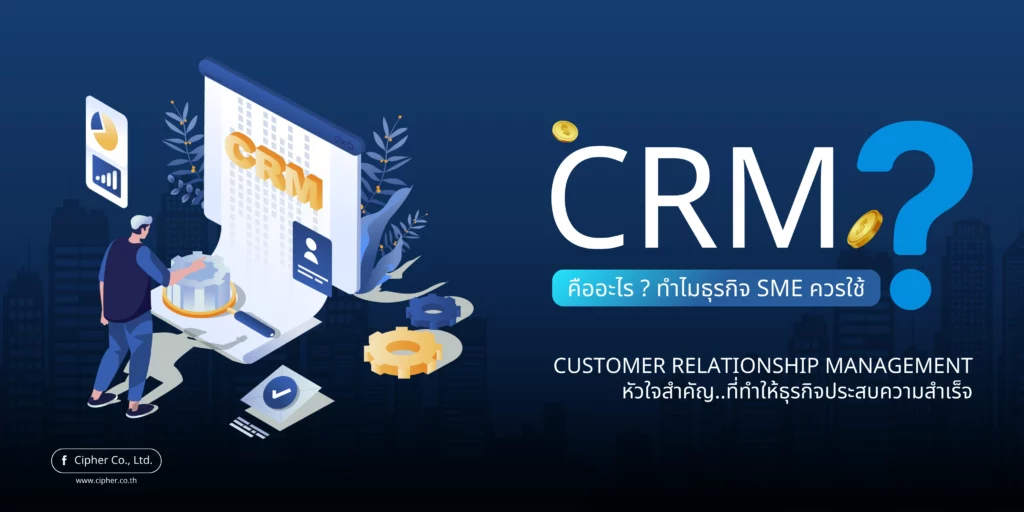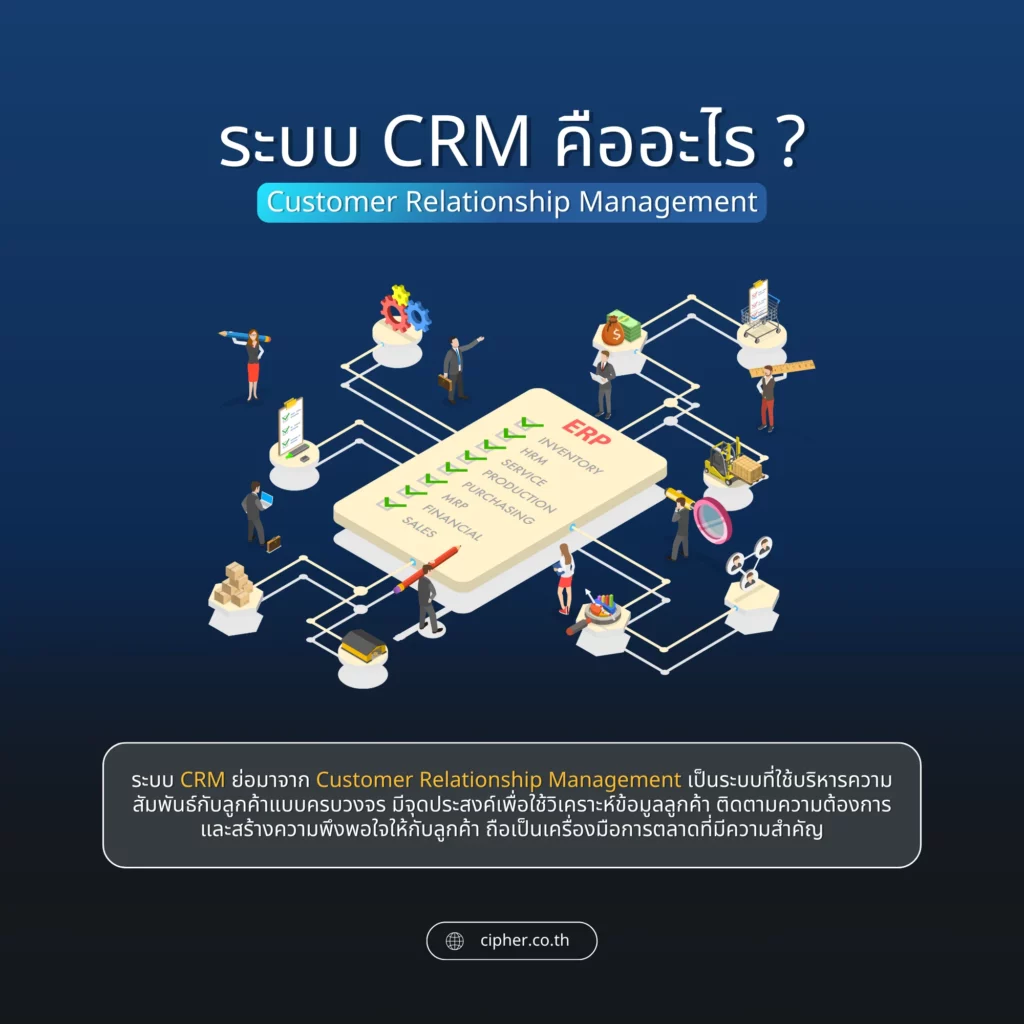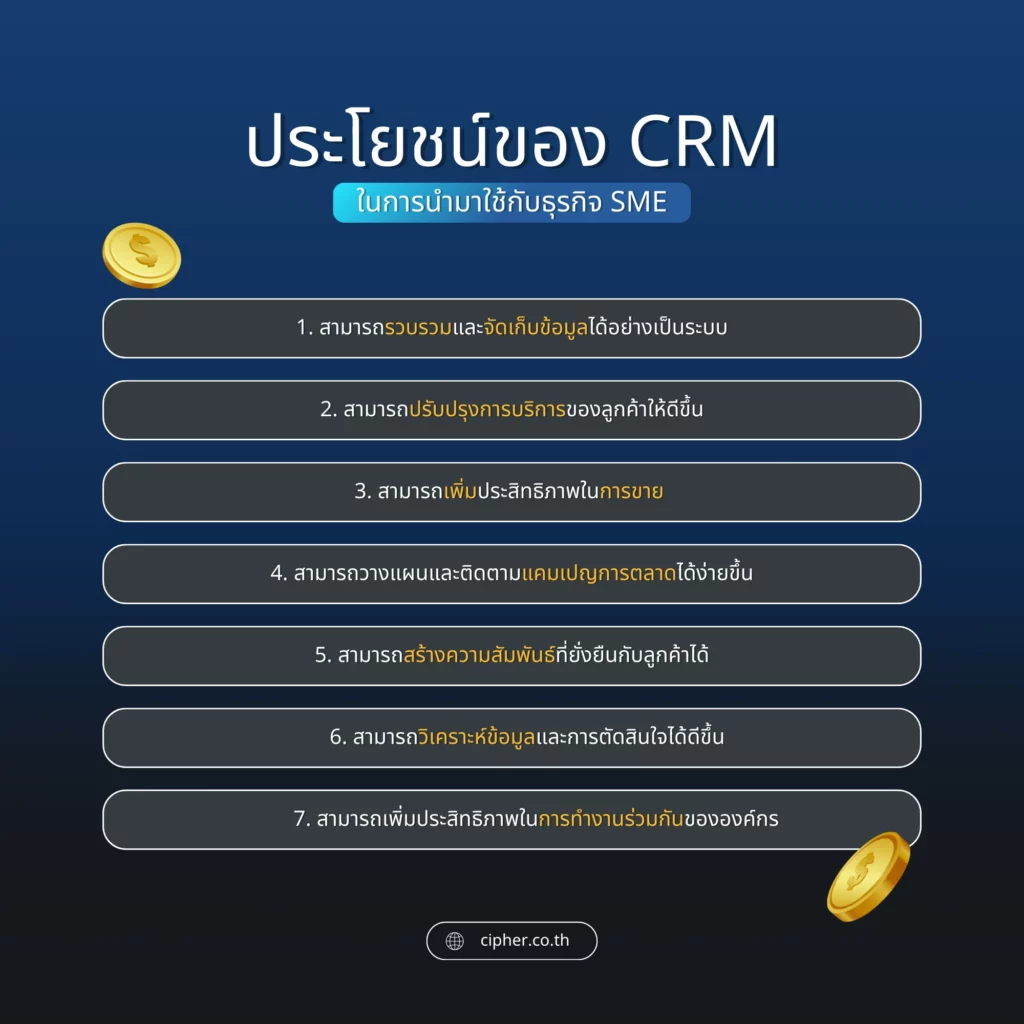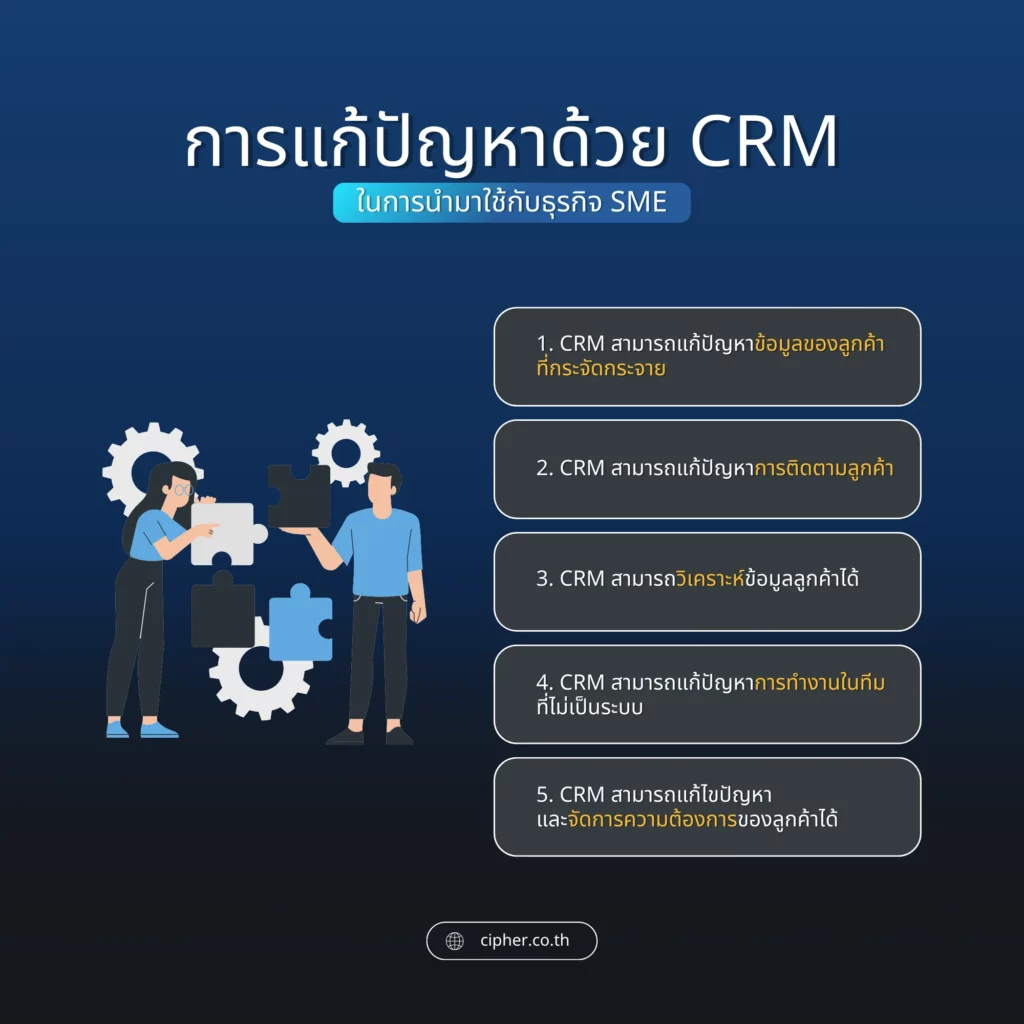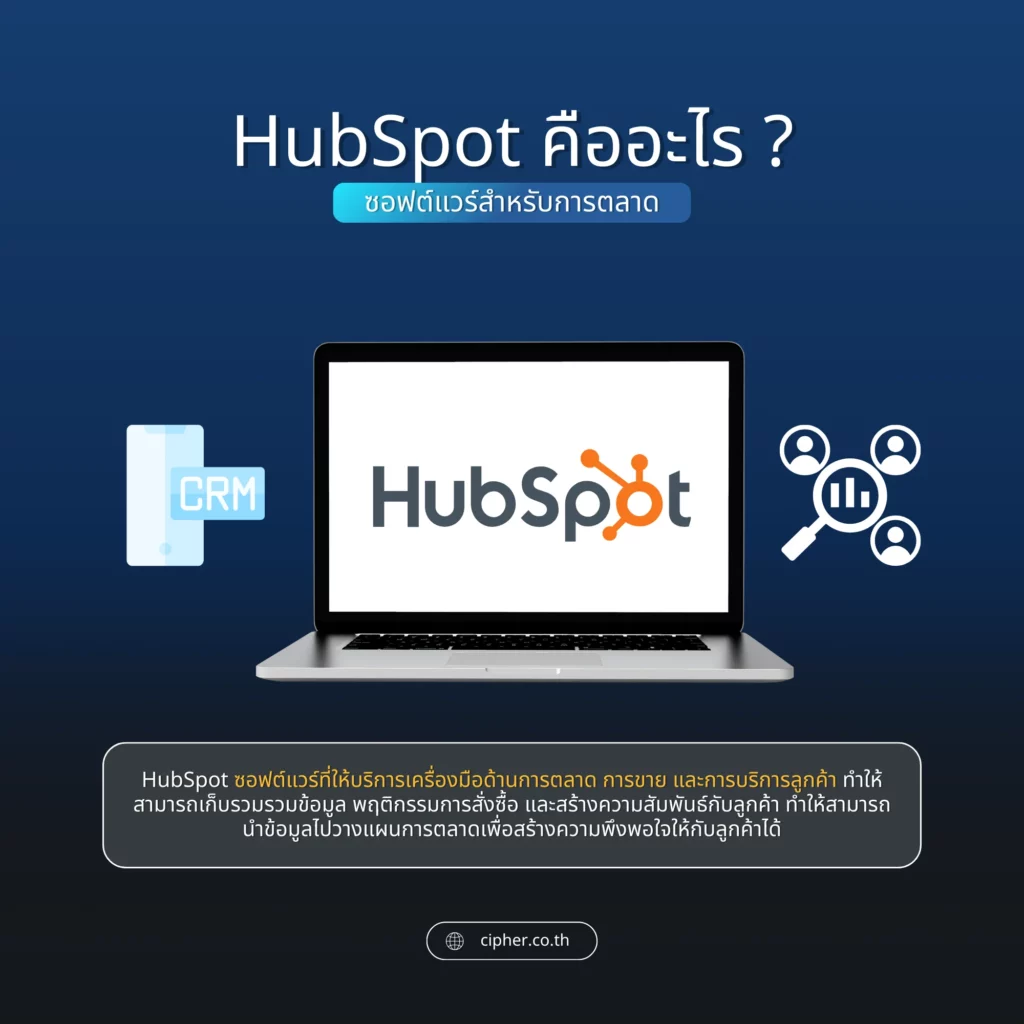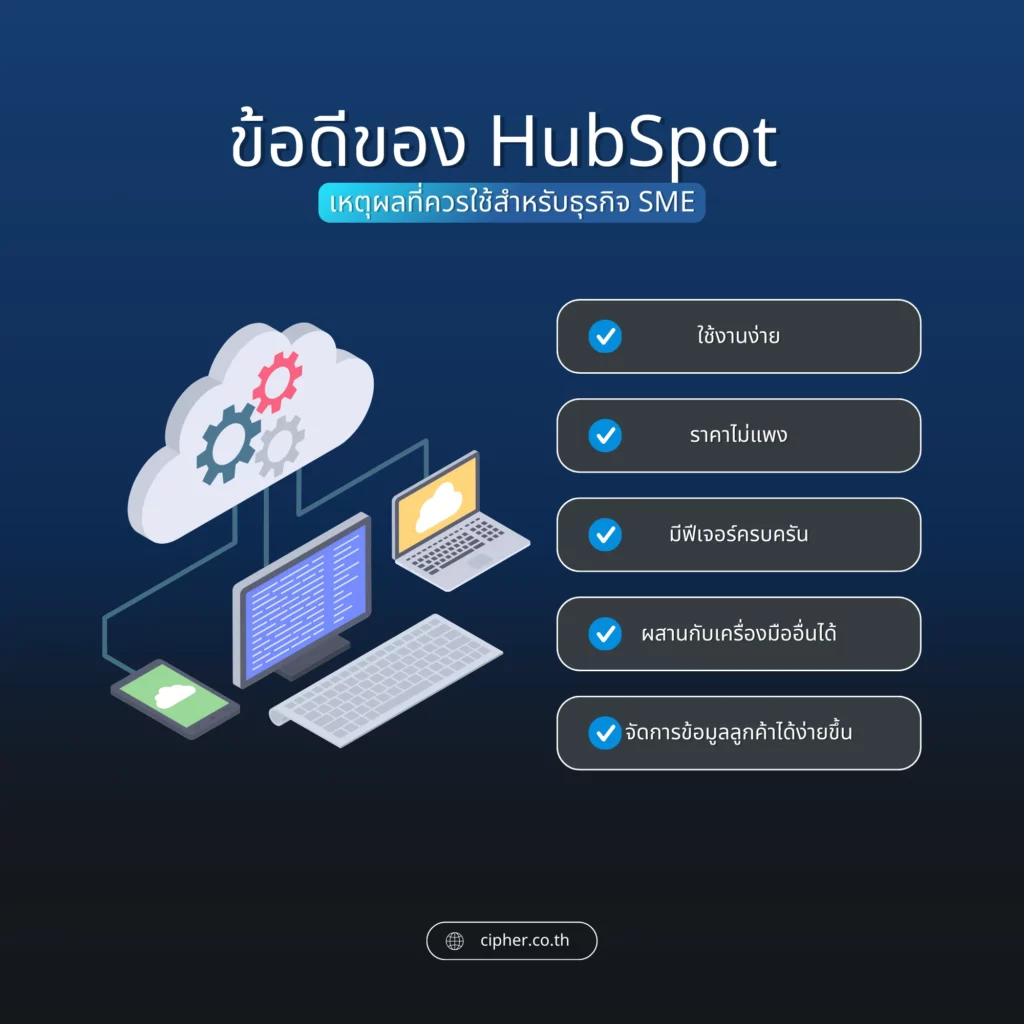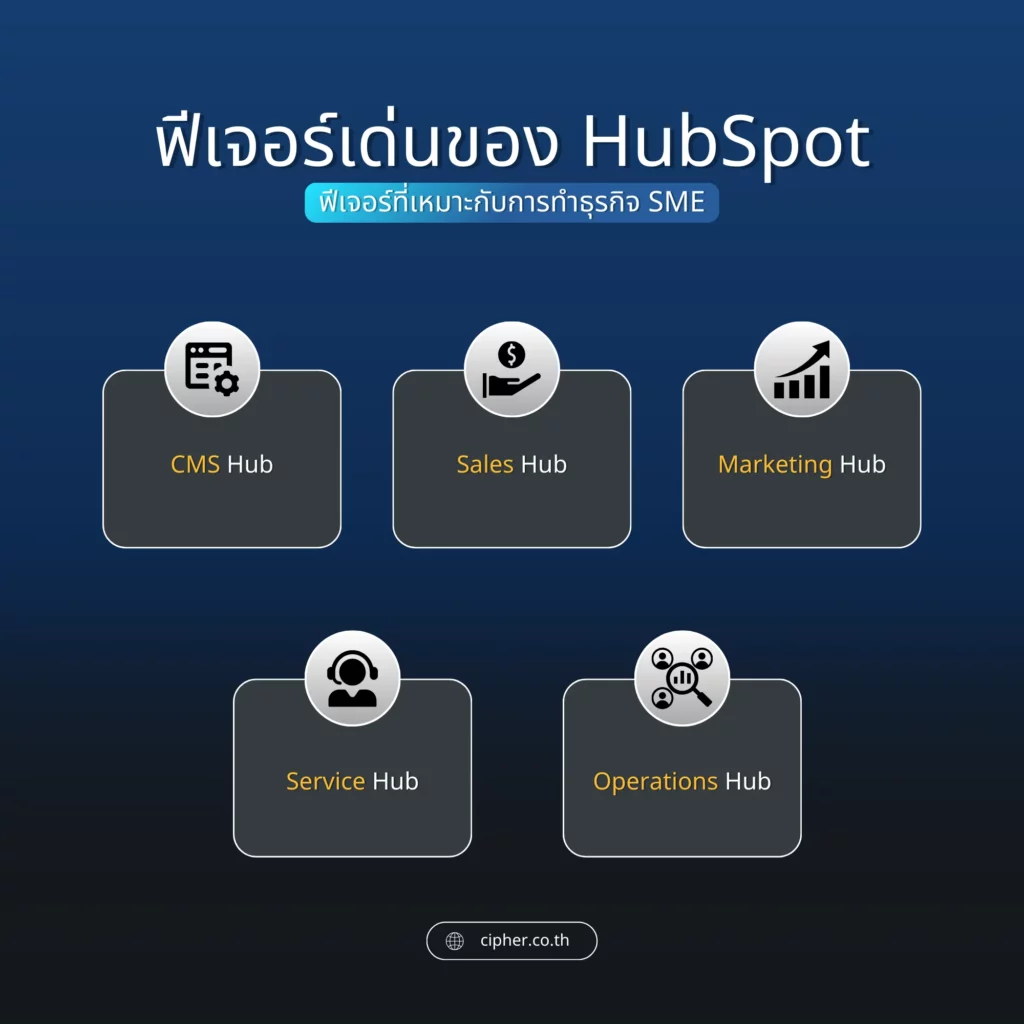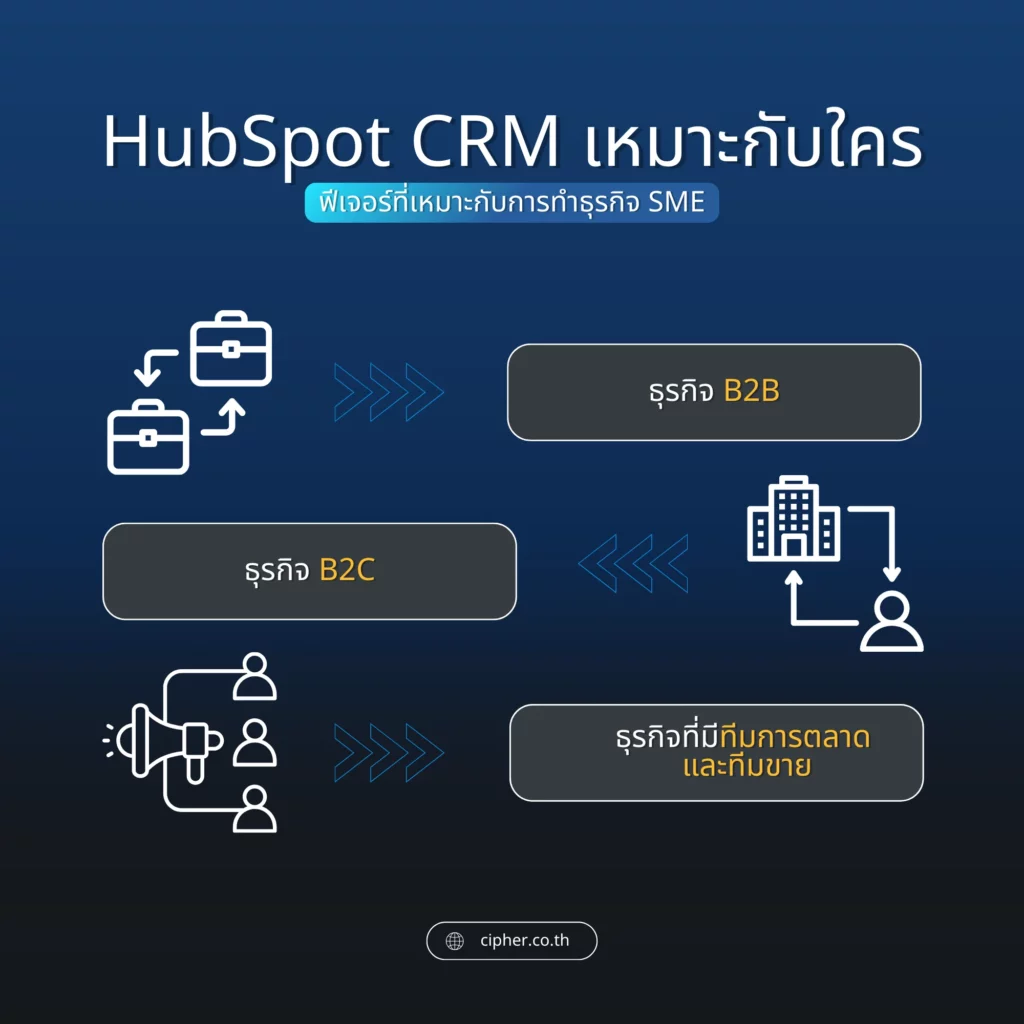Table of Contents
CRM is... What? Customer relationship management system that SME businesses should use
CRM is… What? I believe many people have heard of it before, because in the digital age of intense competition, maintaining customer relationships with CRM (Customer Relationship Management) is at the heart of success, especially for SMEs that need to differentiate and grow steadily.
SMEs that do not have a scattered customer information management system may have a less obvious impact on the overall picture. As the business grows, CRM is very important. CRM is a system that helps manage customer information more efficiently.
CRM is… What?
CRM stands for ‘Customer Relationship Management’. CRM is a customer management system that manages customer relationships. Today, CRM understands software or systems intended to analyze customer information, follow customer needs, conduct trading and satisfy customer service. It is an important tool in business that helps maintain good relationships with customers.
CRMs come in many forms depending on their use, such as cell, membership card, and sales team management, depending on their needs. All information is collected and stored in one place, making it accessible and easy to use. CRM is like a professional assistant who takes care of your customers from start to finish, whether it’s primary storage. Sales status monitoring, troubleshooting or sales promotion through various channels. CRM is a fully integrated system.
The CRM system is used to make What?
The CRM system can be used to enhance business performance as follows:
1. The CRM system is used for customer service.
CRM or Customer Relationship Management is a key customer satisfaction system. CRM simplifies customer service and improves customer satisfaction. CRM provides standardized, non-disruptive, searchable customer data storage.
2. The CRM system is for sale.
The CRM system is designed for sale, starting with a record of customer interest, service requirements or lead conversion.
When customers ask for information on any channel, the system can record customer information for the purpose of presenting information about products or services they are interested in, and so that customers can make decisions about purchasing or using your business.
3. The CRM system is used for marketing.
CRM can be used to adjust marketing trends, such as recording details that have been discussed with customers. CRM can collect and analyze customer needs and create sales strategies such as creating targeted content or promotions and campaigns that meet customer needs.
How important is CRM to SMEs? ? Why should SMEs use it?
SME business is highly competitive. The key to success in SME business is efficient management and marketing management. In terms of marketing, customer relationship building has been implemented as a tool to strengthen relationships with customers in SME business.
CRM is a software system that manages customer relationships by using technology to help collect information through various channels such as Facebook. Instagram, or business website, will analyze and expand marketing to enhance personalized marketing, allowing customers to purchase products or use services in the future.
Benefits of CRM to SMEs
The use of CRM (Customer Relationship Management) systems in SME businesses has several advantages to improve work efficiency, maintain good relationships with customers, and conduct business as follows:
1. CRM enables SME businesses to collect and store information systematically.
- Easy and fast access: CRM allows customers to collect and store their data in one place, allowing marketing teams or business owners to access their data as soon as they need it.
- Systematic Data Management: CRM systems can help clients store and manage their data systematically, avoid confusion, and reduce data management errors.
- Multi-source storage: CRM systems can collect customer information from multiple channels, such as websites, email or social media.
2. CRM enables SME business to improve customer service.
- Customer Response: CRM enables marketing teams or business owners to use their collected data to analyze their purchase behaviour and know their needs to respond quickly and accurately to their needs.
- Problem and Complaint Monitoring: CRM helps track and manage customer complaints more easily, allowing marketing teams or business owners to quickly and efficiently plan for resolution and management of emerging issues.
3. CRM enables SME business to increase sales efficiency.
- Sales Tracking: CRM helps track sales status from start to close, allowing marketing teams or business owners to track real-time sales status, increasing sales opportunities.
- Sales Data Analysis: CRM can help analyze sales data and marketing trends, allowing marketing teams or business owners to plan their sales strategies accurately.
4. CRM makes it easier for SMEs to plan and monitor marketing campaigns.
- Group Marketing: The CRM system can help plan and track customer behaviour and needs. This information can be used to develop marketing strategies to create campaigns or promotions that match the lifestyles and needs of target customers.
- Campaign outcome measurement: The CRM system can help collect information to measure the outcome of a marketing campaign, allowing marketers or business owners to immediately know which campaigns are effective, allowing them to be used to improve future campaigns to generate sales.
5. In addition, CRM enables SME businesses to build sustainable relationships with customers.
- Preserve existing customers: CRM helps track and maintain existing customers, enabling them to build long-term relationships with customers, such as customer interaction privileges, making them feel special and want to buy or use business services.
- Customer Satisfaction Enhancement: CRM is a key tool to support marketing teams and business owners, delivering better service and meeting customer needs in a timely, efficient and efficient manner, improving customer satisfaction and maintaining long-term customer relationships.
6. CRM enables SME business to better analyze data and make decisions.
- In-depth analysis: CRM can help analyze data, buying behavior and customer needs and sales, allowing businesses to understand customer behavior and needs and predict trends in customer needs to optimize their business plans.
- Data-driven decision making: Data collected and analyzed by CRM enables marketing teams and business owners to plan business strategies and sales trends, enabling businesses to efficiently plan production, marketing and resource management.
7. In addition, CRM enables SME businesses to increase the efficiency of corporate collaboration.
- Team sharing: CRM makes it easier for teams in each plan to share information and collaborate, reducing the process and time required to develop other critical business areas or take care of customers.
- Improvements in enterprise communications: CRM systems can provide systematic customer information, enabling rapid and efficient communication of image data in the enterprise.
Common problems in SME businesses can be solved with CRM.
Using the CRM (Customer Relationship Management) system can help solve common SME problems as follows:
1. Customer information is scattered.
- The problem: SMEs often have customer information in many places, such as in Excel files, e-mail or notebooks. If you look at future business growth, if you don’t have a clear source of customer information, it will be more difficult to use and contact customers, and there will be no updates, so they won’t be useful.
- CRM: Using CRM to consolidate this information into one location, make it easier to access it and reduce the risk of loss. In addition, it can use a lot of information to organize sales strategies and analyze customer behavior, making it more efficient to track customers and work.
2. Client monitoring is not effective.
- Problems: Tracking or contacting customers, such as managing appointments or tracking sales, can sometimes lead to missing important follow-up. This problem often occurs in SME businesses with a large number of employees, making it impossible to take care of them thoroughly.
- CRM Troubleshooting: Using CRM provides a system to track and record customer contacts, enabling efficient tracking of customer status, not missing opportunities to track customers or sell, reducing the likelihood of losing customers and increasing sales.
3. Customer data analysis is difficult.
- Problems: Analysis of customer data for trends or improvements in marketing and sales strategies is often time consuming and complex, from multiple tabs to confusion and misinformation, especially analysis of customer data to understand customer behaviour and buying trends, which is difficult when data is scattered.
- CRM-based solutions: Using CRM enables data to be consolidated in one location, allowing everyone in the organization to access this data quickly and accurately, improving marketing and sales strategies, improving decision making, increasing sales and customer satisfaction, reducing processes and time to work.
4. Interoperability of non-systematic teams
- Problems: SME teams often have difficulty communicating and coordinating with each other, causing delays and errors in their work.
- CRM: The CRM system can enable seamless team collaboration by sharing customer information through a single system, enabling more effective communication and coordination within the team.
5. Non-systematic client requirements and issues management
- Problems: SME businesses often have problems in handling complaints or customer requests, and delayed resolution of customer problems due to the lack of a system to track them and manage them.
- CRM Troubleshooting: The CRM system can help track status and manage customer requests and issues, enabling quick and efficient response to customer requests and solutions.
The availability of CRM software solves these challenges, giving market competitors an edge and helping marketing teams track customer status, customer behavior and data collection, helping them better serve their customers than ever before.
What is HubSpot?
HubSpot is a software platform that provides a comprehensive portfolio of customer relationship management (CRM) tools. HubSpot is designed to help businesses attract customers, transform target customers into real customers and maintain long-term customer relationships.
HubSpot can also store customer data such as personal information, order history, conversations, and can track status, sales, and analyze customer data.
5 reasons to choose HubSpot as a CRM for SMEs
HubSpot has many advantages that are especially suitable for SMEs because it is flexible, easy to use, and has features that cover customer relationship management, marketing, and sales. Here are the main advantages that make HubSpot suitable for SMEs:
1. HubSpot is easy to use
- HubSpot’s advantages: Using complex and difficult-to-use software, HubSpot is easy to use. HubSpot’s interface is designed to be user-friendly, so even those without technical expertise can learn and use it quickly.
- Benefits of HubSpot for SMEs: HubSpot can help reduce the time and cost of training employees, allowing the team to focus more on improving efficiency and sales.
2. HubSpot is affordable
- HubSpot’s advantages: HubSpot has free features, but for inbound, there is an additional cost. The payment plan is flexible. And can be adjusted to suit the needs of the business
- The benefits of HubSpot for SMEs: HubSpot can be started without much investment and can be expanded in line with business growth. In the long run, HubSpot is definitely suitable for supporting business growth.
3. HubSpot is fully featured.
- HubSpot’s highlights: Frequent switching can cause complexity and errors. HubSpot combines all the tools needed to manage customers, sell and market in a single platform such as CRM, sales management, email marketing, SEO, and data analysis, and can easily chat with customers via Line or Facebook Messenger.
- The benefits of HubSpot for SMEs: HubSpot simplifies multi-tooling and manages everything in one place without the need to open multiple platforms, improving productivity.
4. HubSpot can be combined with other tools.
- HubSpot’s highlights: HubSpot can connect and integrate with a variety of other tools and applications, such as Google Workspace, Microsoft Office, Shopify, and more.
- The benefits of HubSpot for SMEs: HubSpot helps ensure the team’s continuity, no time to move data around, and easy access to familiar tools.
5. HubSpot can make it easier to manage customer information.
- HubSpot’s highlights: HubSpot can help store information or simplify customer database, and provides detailed monitoring and reporting tools such as sales tracking, marketing campaign tracking and customer analysis.
- The benefits of HubSpot for SMEs: HubSpot enables efficient measurement and improvement of operations, increasing sales and marketing opportunities. HubSpot CRM is a great choice for SMEs that require efficient, easy-to-use and flexible CRM systems to meet the diverse needs of their business.
How does HubSpot CRM help your SME business grow?
Using HubSpot CRM can increase SME sales through mechanisms that focus on effective customer relationship management and efficiency improvement in the sales process. This is the key mechanism that HubSpot can help increase SME sales as follows:
1. HubSpot CRM Helps Increase Sales
One of the key features of HubSpot CRM is to increase sales for SME businesses by systematically managing customer information, enabling them to monitor customer interactions in detail, enable sales teams to quickly access customer critical information and effectively plan sales strategies for each customer, such as:
- Sales Opportunity Tracking: HubSpot CRM makes it easier for sales teams to track customers. HubSpot CRM stores all customer data, allowing marketing teams or business owners to access information immediately and adjust marketing strategies to suit customers.
- Customer Management: HubSpot CRM simplifies customer data collection and management, allowing sales teams to prioritize and track customers and distribute them to sales teams effectively, reducing duplication of work and increasing the likelihood of closing sales.
- Campaign Results Tracking: With HubSpot CRM being able to collect customer information, HubSpot CRM is able to create and send customer-friendly marketing emails, and has the tools to track the results of the marketing campaign.
- Sales Analysis: HubSpot CRM provides sales data analysis tools that enable sales teams to view in-depth information about sales performance and customer buying trends, and to predict future customer buying trends, allowing them to be applied more effectively to marketing strategies.
2. HubSpot improves performance.
In addition to increasing sales, HubSpot CRM improves enterprise productivity. HubSpot CRM can collect customer information and communications in a single system, enabling seamless sharing, collaboration and progress tracking.
- Auto Tracking Email: HubSpot CRM automates customer tracking email, eliminating duplication of work for sales teams and focusing more on closing sales.
- Connectivity to other applications: HubSpot CRM can connect and integrate with a variety of other tools and applications, such as Google Workspace, Microsoft Office, Shopify and more, and can also chat with customers via Line or Facebook Messenger or platforms, making data unified and simplified.
- Multi-source data integration: HubSpot CRM enables data collection from multiple sources, providing complete information such as customer information, order information, talk history, and efficient analysis of those information.
- Report Generation: HubSpot CRM can help create detailed and easy-to-understand sales reports and dashboards and analyze customer data and improve sales processes for business expansion.
3. HubSpot CRM enhances customer service.
HubSpot CRM is unique for business and customer relationships. HubSpot CRM helps SMEs improve customer service by integrating information, contacts and needs of individual customers, enabling employees to quickly access information. And can serve customers more directly, which has a positive impact on customer satisfaction and resumption of service.
- Customer Request and Problem Management: HubSpot CRM can help track and manage customer requests and problems, enabling rapid response and resolution of problems, improving customer satisfaction and trust.
- Providing Information: HubSpot CRM enables instant delivery of information or details that customers need, speed up work, reducing employee workload and satisfying customer satisfaction.
- Contact Tracking: HubSpot CRM records and tracks customer contact history, allowing sales teams to immediately know the customer’s status and history, impressing customers as businesses pay attention to customer details.
- Fast Response: HubSpot CRM can alert to work and follow-up customers, allowing sales teams to respond quickly to customers.
A Case Study of SME Business Successful Using HubSpot CRM
HubSpot CRM is widely used by business owners around the world with free applications and features that can be customized to suit their business model, including customer data collection, status monitoring and data analysis, enabling businesses to quickly execute marketing activities. To satisfy customers. With these outstanding features, it’s no wonder HubSpot CRM is gaining popularity and trust from businesses around the world.
- Example of a business using HubSpot CRM: Accommodation business. co.uk
- Business information: Accommodation. co.uk is a website that provides online reservation services and a variety of tools to efficiently manage the lodging business.
HubSpot CRM solves the problem of Accommodation. co.uk can be found in many aspects as follows:
- Customer Management
- The problem: Customer data is scattered across multiple repositories, such as email, Excel, and note-taking, making it difficult to manage and access customer data.
- Workaround: HubSpot CRM provides systematic and accessible customer retention, enabling teams to efficiently track customer information, contacts and rental history, and to collect customer information from reservations and related activities such as contact and reservation status.
- Marketing
- The problem is that promotions and marketing information for customers are not continuous and inefficient.
- Solution: HubSpot CRM has automated marketing tools that help customers send email, promotions, special offers and relevant information at the right time, make marketing more efficient, and help create and execute marketing campaigns such as email and social media management to generate sales.
- Systematic client management
- Problem: Systematic monitoring and sales opportunities management miss business opportunities
- Solution: HubSpot CRM helps track sales opportunities and business operations, enabling sales teams to track and manage customers more effectively, increase sales opportunities, and manage customer databases and other contacts, making services more efficient and responsive.
- Analysis and Items
- Problem: Lack of efficient data analysis and reporting makes it difficult to improve strategies.
- Workaround: HubSpot CRM provides reporting and marketing data analysis tools that enable Accommodation. co.uk can check its performance, analyze its data, and improve its strategy to suit its customers, and launch a campaign to continuously satisfy customers.
- Customer Service Improvements
- Problem: Slow response to customer questions and issues is inefficient.
- Solution: HubSpot CRM enables customer service teams to track status and respond to questions, quickly and efficiently solve customer problems, impressing customers with good service and returning to service next time.
Results obtained using HubSpot CRM
Accommodation. co.uk has brought HubSpot CRM to help address business challenges and to increase sales opportunities and improve services. The use of HubSpot CRM has led to Accommodation. co.uk can effectively solve the problems that arise in business management and develop good relationships with customers.
In addition, HubSpot CRM provides greater flexibility and customer service. After implementing HubSpot CRM, businesses will be able to create a campaign to attract more customers.
The unique features of the HubSpot CRM system are suitable for SMEs.
HubSpot CRM provides a variety of systems and features that help SMEs manage customer relationships, sales, marketing and customer service. Key systems include:
1. HubSpot CMS Hub feature
Today, there are many marketing platforms that disperse customer information. HubSpot CMS Hub can gather customer information from each platform to the same location, including business websites, Facebook, Instagram or email. When you want to contact customers or send promotions, you don’t have to waste time pulling information from each channel.
2. HubSpot Sales Hub Features
Sales Hub in HubSpot CRM is a suite of tools designed to help sales teams effectively manage and improve sales processes. It can help sales systems, cell tracking, such as tracking the cell’s process of customer contact and progress, as well as recording all sales activities such as meetings, Telephone calls and email delivery to enable sales teams to track and improve sales processes.
3. HubSpot Marketing Hub Features
Marketing Hub in HubSpot CRM is a suite of tools designed to help businesses market their content from content creation, email campaign management, social media marketing such as website creation, campaign analysis and improvement, or use customer information as a comprehensive marketing concept. It enables businesses to attract target customers and engage with customers such as Marketing Automation. HubSpot Marketing Hub can set up and configure marketing automation such as sending email based on customer behaviour, tracking website visits and creating campaigns that respond to customer behaviour, or creating Landing Pages. To collect information on target customers.
4. HubSpot Service Hub Features
The Service Hub in HubSpot is a suite of tools designed to help SMEs manage and improve customer service, enabling them to solve customer problems systematically with comprehensive customer service features from request management, conversation with customers, knowledge base creation, analysis and reporting, enabling them to provide quality customer service. And increase customer satisfaction.
5. HubSpot Operations Hub Features
Operations Hub in HubSpot is a suite of tools that help SMEs manage and streamline their enterprise processes with data sync, automated process management, data cleanup and collaboration features with other applications, such as data syncing between applications or software to provide data to customers from multiple platforms.
Guidelines for Using HubSpot CRM Effectively
Effective use of HubSpot CRM can improve customer management, marketing and sales efficiency for SMEs. Here are some guidelines and tips to help you make the most of HubSpot CRM.
1. Setting Up the HubSpot CRM System and Managing Client Information
- Importing data accurately: Users or business owners need to start by importing customer data from different sources into the HubSpot CRM system by managing the data in an orderly and complete manner.
- Quality information management: HubSpot CRM is an important security system. The system periodically checks and updates client information so that information is always accurate and up-to-date.
2. Reduce workflow steps with HubSpot CRM to help create automation processes.
- Workflows: HubSpot CRM has a variety of tools to choose from, allowing you to customize your business model. HubSpot’s Workflows feature automates workflow such as automated email response, product-oriented customer tracking, or sales team alerts.
- Using Marketing Automation: Another feature of HubSpot CRM makes marketing teams easier is Marketing Automation, a feature designed to create automated marketing campaigns that can be monitored and updated at any time, reducing workflow and time to adjust marketing strategies.
3. HubSpot CRM can analyze and track performance.
- Using Reports and Dashboards: Use HubSpot CRM reporting and dashboard features to track and analyze sales and marketing team performance, enabling customized strategy improvements.
- MEASUREMENT AND IMPROVEMENT: HubSpot CRM can measure the results of campaigns and activities that have already been done, allowing data to be analyzed and used to improve marketing and sales strategies based on the data received.
4. Using HubSpot CRM to build customer relationships
- Using the Email Marketing feature, HubSpot CRM can store customer information from a variety of platforms, including websites and social media platforms. This information can be used to create campaigns or promotions by using the email marketing feature in HubSpot CRM to send email to customers in person and to suit their needs.
- Using the Live Chat: HubSpot CRM feature, HubSpot can use the Live Chat feature to communicate with customers in real time, help them solve problems and answer questions immediately, and capture customer profiles and analyze information for marketing adjustments.
5. The HubSpot CRM contains articles for use in training and coaching staff.
- Team Training: HubSpot CRM is an integrated business environment that provides team training on HubSpot CRM to enable everyone to understand and use the system effectively.
- Using the Resource Center: HubSpot CRM offers HubSpot learning resources and tools such as articles, videos and online training to enable teams to learn and develop system skills at any time.
HubSpot CRM Caution and Restrictions
1. HubSpot CRM is complicated to set up.
Although HubSpot CRM provides more user-friendly interfaces than other CRM systems, setup and configuration can be complicated, making it necessary for those who are not familiar with HubSpot CRM or early adopters to study details before use, making it time and effort to learn and adapt.
2. Upgrading the HubSpot CRM feature costs additional money.
Business needs to look forward to growth. Of course, HubSpot CRM offers free features. If business grows, it will be necessary to upgrade its features to enable a wider variety of HubSpot CRM applications and fit the business model, and to add more teams to access it. As a result, the cost of upgrading and deploying add-on features can be higher depending on the size and needs of the business.
3. HubSpot CRM offers an English menu.
HubSpot CRM is popular worldwide, making it easy to use and menu items in English, which may be a minor obstacle for some organizations where their teams are not proficient in languages, but there is no need to worry because they can save data in Thai as usual. HubSpot CRM also supports other languages.
4. HubSpot CRM offers an English menu.
HubSpot CRM is compatible with more than 900 applications and applications that are commonly used around the world, allowing plugins to be downloaded for use with programs, but some applications may not be able to load plugins immediately, making it necessary to study whether applications or programs that businesses need to use regularly. Is it compatible with HubSpot CRM?
HubSpot CRM Security and Reliability
HubSpot CRM is one of the most popular and trusted customer relationship management tools in the global business community. There are several factors that make HubSpot reliable and secure for SME applications as follows:
1. HubSpot CRM has security standards.
- Encryption: HubSpot CRM is a system that uses SSL (Secure Socket Layer) encryption to prevent the interception of data between HubSpot users and servers.
- Compliance: HubSpot CRM is a compliance system to security standards such as the GDPR (General Data Protection Regulation) for personal data protection in the European Union and SOC 2 Type II for internal security control.
- Security Monitoring: HubSpot CRM is a security monitoring system that uses Penetration testing and Vulnerability assessment to identify and resolve vulnerabilities in the system.
2. HubSpot CRM has system reliability.
- High Performance: HubSpot CRM offers fast, efficient data processing capabilities that support business applications of all sizes from SMEs to large enterprises.
- Backup: HubSpot CRM provides automated, consistent backup to prevent loss of critical data.
- Continuous Service: HubSpot CRM offers a highly stable uptime system and 24/7 service ensures continuous system availability.
3. HubSpot CRM protects personal information.
- Privacy Policy: HubSpot CRM has a strict privacy policy and manages customer information based on GDPR principles and other privacy regulations.
- Access Control: HubSpot CRM offers a highly secure access control system that allows users to assign access rights based on their level of need.
Who does HubSpot CRM suit?
- B2B businesses, or businesses with continuous systematic functions, need to manage their relationships with customers such as Digital Marketing Agency.
- B2C businesses or high-inflation businesses that need to be well informed before purchasing such as real estate or automobiles.
- Businesses with marketing teams are important. HubSpot CRM can help simplify marketing teams and simplify their processes and improve marketing efficiency.
HubSpot is free of charge, right?
Most CRM software or systems are demo-based, which has limited uptime, making them cost-effective, but HubSpot CRM offers free features that are essential for business start-ups.
Get expert advice on using HubSpot CRM.
Looking ahead to business growth and enterprise, choosing features or optimizing HubSpot CRM is essential. To use HubSpot CRM to use full-scale Inbound Marketing to attract customers and develop sustainable business relationships, additional costs are required. Depending on the needs of the business and to enable the HubSpot CRM to suit your business, get expert advice now.

